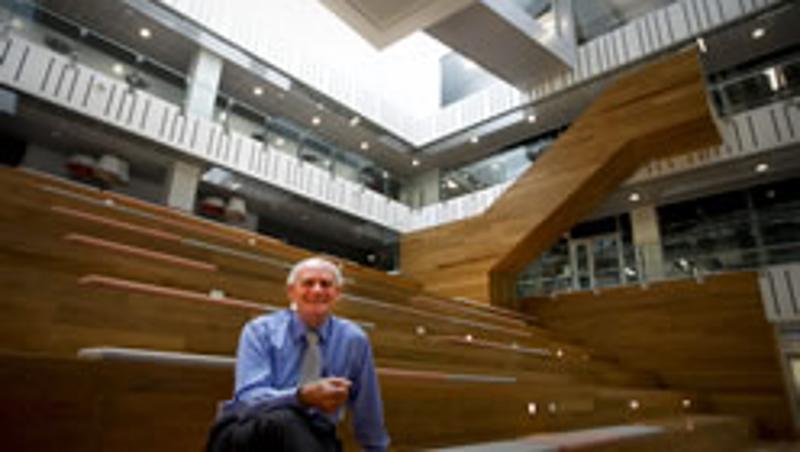
QUT is developing a new research institute to address key global challenges such as energy consumption and protection of infrastructure critical to water, food and transport security.
The Institute for Future Environments (IFE) housed within QUT's new $230 million Science and Engineering Centre and brings together top researchers across a range of disciplines to deal with specific problems facing the built, natural and virtual environments.
The convergence and inter-dependence of these environments will be key drivers in shaping the type of research undertaken and our understanding of their future.
IFE research will focus on seven themes:
•Future energy systems and clean technologies
•Secure and resilient infrastructure
•Intelligent systems and adaptive communities
•Healthy ecosystems and environmental monitoring
•Sustainable tropical and sub-tropical production
•Geo-systems and resources and
•Mathematics, computation, simulation and e-research.
IFE director Professor Ian Mackinnon said the Institute would conduct innovative research around big issues such as security and nutrient value of our food crops, greenhouse gas emissions, the development of better construction technologies, improving the way we conduct business and the sustainable use of our natural resources.
"Crucial major infrastructure developments such as power plants, airports and other transport systems and the increasingly complex information systems that run them need to be highly resilient and secure from inappropriate exploitation and from natural disasters," he said.
"Infrastructure is critical to the proper functioning of our society. The retrofitting of existing infrastructure to make it more sustainable and secure is a challenge being faced by many nations."
Professor Mackinnon said the transition to a low-carbon society was essential in the face of global demographics and limited resources and thus, cleaner technologies were required not only in the energy industries but in agriculture, water and wastewater, waste and recycling, transport and manufacturing.
He said in order to assess and deal with the real impact of human activity on air and water quality, viability of ecosystems and on the diversity of native flora and fauna, IFE was developing sophisticated data collection and analysis technologies as well as autonomous robots and remote sensor networks to monitor environments on a continuous basis.
"As the only developed country within the tropics, Australia is well-placed to position itself as a leader in the development of sub-tropical and tropical agricultural and fisheries industries as well as the design and development of infrastructure that reflects these unique environments," he said.
"Better use of water and soil systems and the genetic manipulation of specific crops or livestock to improve their nutritional value as well as advanced disease detection are critical to world food supply."
He said IFE researchers were also investigating ways of better identifying and measuring natural resources including ground waters, fossil fuels, oceans and reef systems, and these and many other projects were underpinned by mathematical research designed to meet the challenges set by real-world environments.
Professor Mackinnon said IFE research would be supported by existing QUT facilities such as the Pilot Plant Precincts at Banyo and Mackay and the Samford Ecological Research Facility and that the Institute would have a strong emphasis on partnering with industry and external agencies to ensure real world application of research.
Media contact: Rose Trapnell, QUT media officer, 07 3138 2361 or rose.trapnell@qut.edu.au


